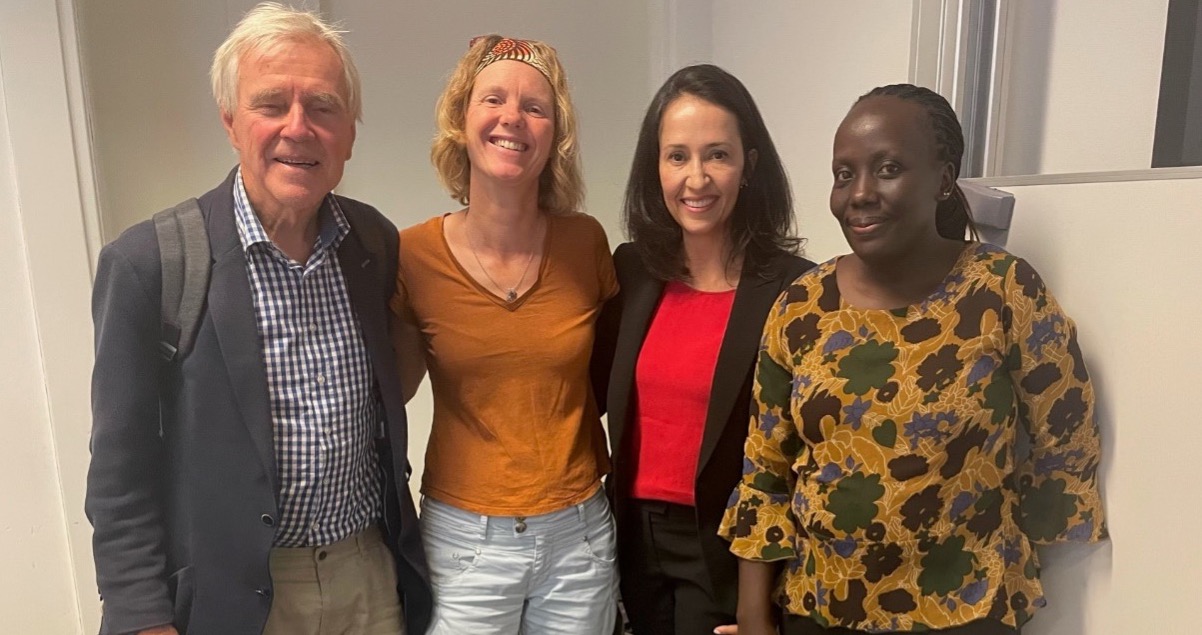This session brought together insights on land governance and climate resilience, with a specific gender focus. Women suffer from lack of access to, decision making over, and use of land. At the same time, climate change disproportionally affects women. Research indicates that ‘gender just land governance’ forms the key to use land in a sustainable, climate-proof way. There are many entry points to make land governance just and inclusive of women. In this session we heard about different approaches of gender focussed land governance aspects that collectively contribute to answering the question: How can land governance be made inclusive to strengthen climate resilience for women?
Key Takeaways
- Women do suffer from climate change in a gendered way: additional on-farm work, outmigrating husbands, and scarcer resources. This also results in daughters being taken out of school, making the next generation more vulnerable.
- On-the-ground analysis before an intervention is important to identify the underlying root causes of gender inequality that need to be addressed, rather than tackling the visible outcomes.
- Frugal innovations can enable female smallholders to improve their climate resilience.
- Education and empowerment are key.
Presentation 1
Strengthening women’s land rights to contribute to climate action participation: the case of Nepal
Marianna Bicchieri, Social Inclusion and Gender / Land Tenure Officer, FAO Asia Pacific
“Women have a piece of paper but are not empowered.”
In Nepal, women are suffering the consequences from climate change in a few ways. Firstly, their traditional workload increases. Secondly, husbands leave for the city to find alternative livelihoods, leaving women in a vulnerable position. The legal framework and policy environment recognise equal rights for women, but the implementation lags. For transformation, root causes of gender inequality must be identified. These relate to unequal power relations, discriminatory social institutions and rigid and negative gender norms. FAO will address these through interventions in different spheres from individual to national legislation. Women need to be heard, understood, and regarded as agents of change.
Presentation 2
A transition process: the situation of female maize farmers in an emerging land market in Tanzania
Meine Pieter van Dijk, MSM, Maastricht School of Management of Maastricht University
Analysis of a frugal innovation giving access to crop insurance. Smallholders gain access to new seeds, inputs and insurance against rain combined in a single loan. If satellite imagery shows low rainfall, the loan amount related to the insurance is lowered as yields will be lower. The idea is that the new seeds give smallholders access to improved varieties. Both men and women have taken up this insurance package. Survey results show that yield does improve, also for women. However, it was also noted that the main issue for smallholders that season was not rain, but caterpillars. Also, observed patterns of females mainly gaining access to land through rental and using this land for fruit and vegetable farming were already seen 20 years ago.
Presentation 3
A transition process: the situation of female maize farmers in an emerging land market in Tanzania
Jordana Wamboga, Human Rights Lawyer, Uganda Community Based Association for Women and Children’s Welfare (UCOBAC)
“Men come to collect what they have not toiled for.”
Land gives women source of income and identity. But they have no control over output. Women are agents of change, they have knowledge. Uganda also has a strong legal framework. But the big elephant is traditional and cultural norms. The dominant thinking is still that “As a wife, you have come to visit”. This attitude hampers empowerment. Women cannot assert to what they do not know”. Thus, women are left with no land to till, they cannot provide for the family, and they have no access to justice. As much as the law says that 30% of decision-making bodies should be women, the question is “who are these women, and how do they participate? “ After working hard on the land, towards harvesting time, men come to collect what they have not toiled for. We see that climate change can intensify women’s care burden. We participate in the “Stand for her right campaign” and promote land registration in name of women.
Discussion
On the decision-making bodies Jordana states that enhancing the quality of the engagement of women is the priority. Once women are empowered and participate in an equal manner, then the numbers can be pushed up. Marianna noted that in administrative work, women are overrepresented, but towards the top it is mostly men.
The importance of educating women is seen as key, and this is hampered by climate change. During floods, schools serve as assembly area for people who have lost their house, and thus no education is taking place. During droughts, it is the girls who have to help in fetching water and thus miss school. As such it was noted that climate change seems to feed in to the orthodox thinking.


